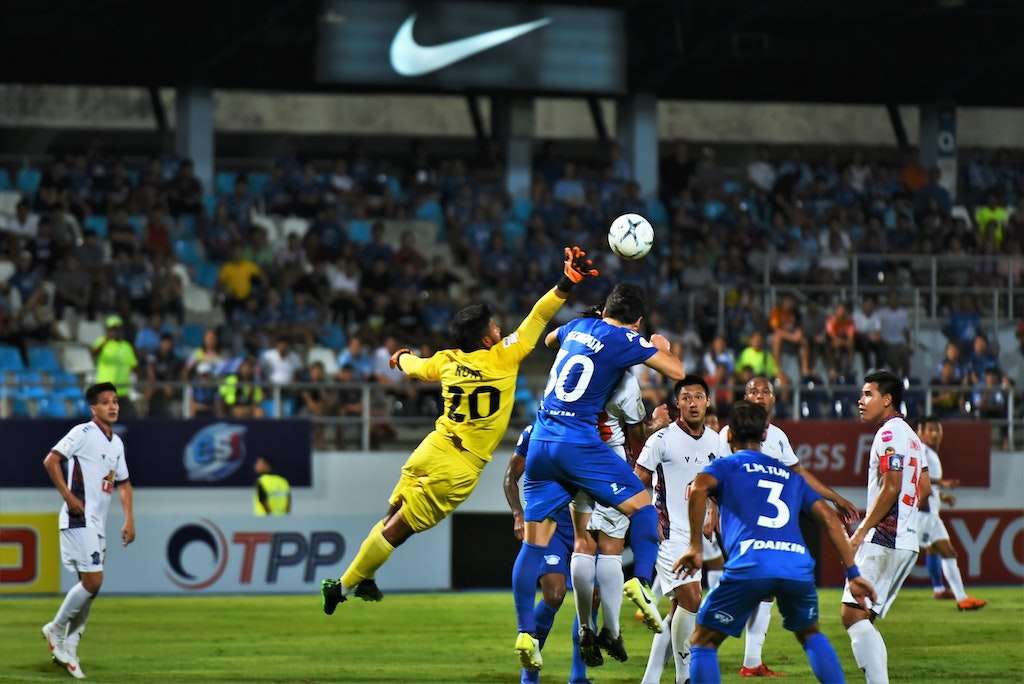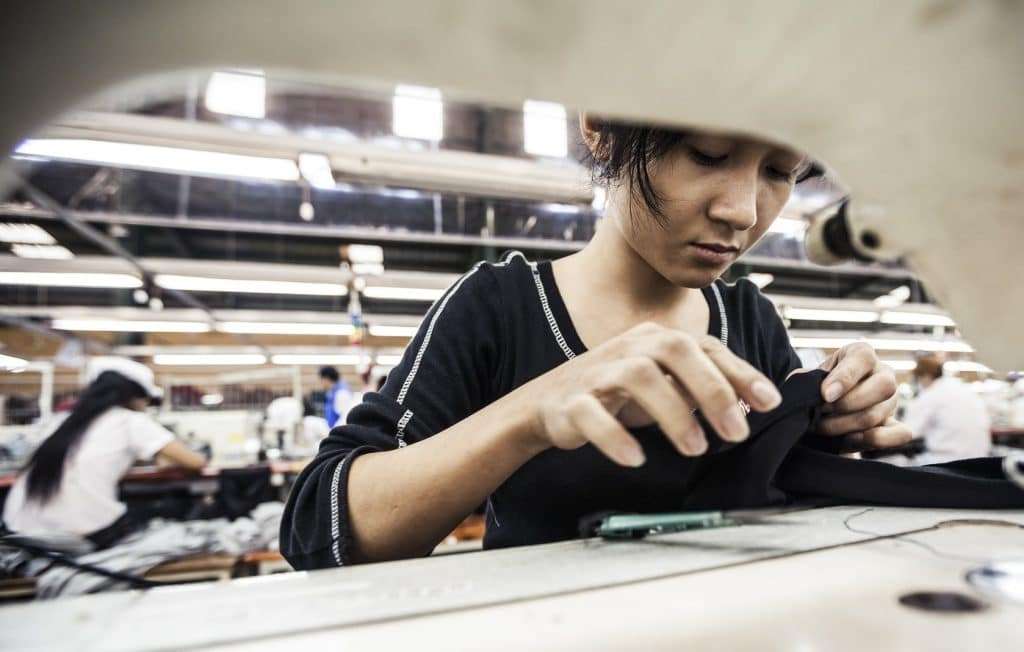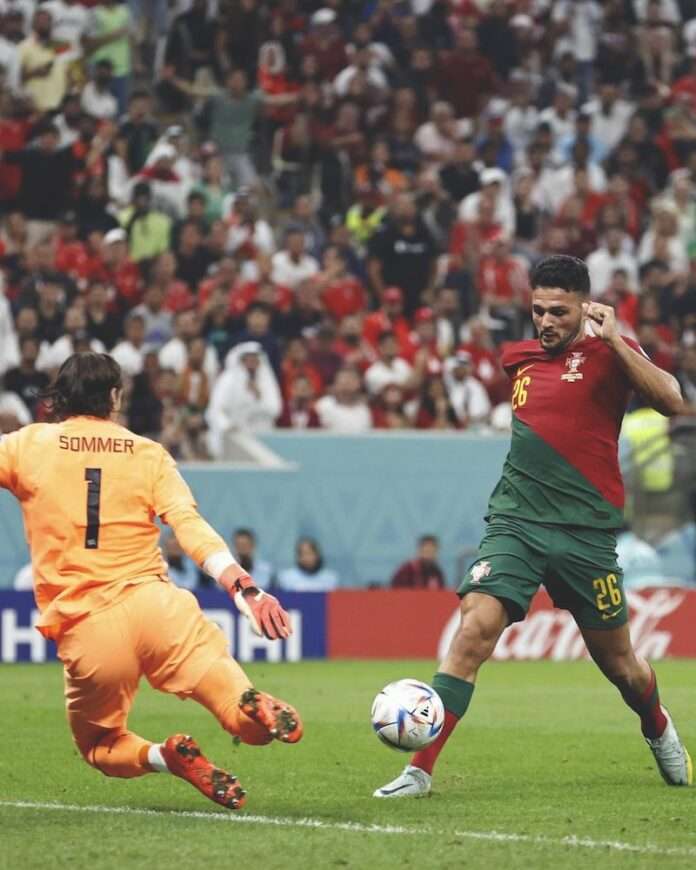If you’re wearing a team jersey while watching the World Cup, you may be supporting factory worker exploitation.
On December 18, all eyes will be on Qatar, as sports fans eagerly await to see which country’s national soccer team will take the top spot at the 2022 World Cup. The last final of the tournament, held in Russia in 2018, was watched by roughly 1.12 billion people around the world. And, according to predictions, this year’s match is set to beat that record. But, in the long lead-up to the final, some have been less fixated on the game and more focused on what the players are wearing.

In countries like Thailand and Myanmar, garment factory workers have been avidly sewing uniforms for the tournament’s biggest sponsors: Adidas and Nike. And, while this year’s winning team will take home more than $40 million USD in prize money, reports suggest that some of the workers who made the clothes they will celebrate in cannot afford to eat. But, as we’ve seen time and time again, athletes have power and influence. Here’s why it’s time soccer players stand up for the humans who make their kits.
Sports giants exploit factory workers
Earlier this month, The New York Times reported that 7,800 workers in a factory in Yangon, Myanmar, were making Adidas soccer boots for just $2.27 per day. Another report from the UK’s Daily Mirror predicted that in Bangkok, Thailand, workers were averaging around $1.20 an hour to make official World Cup jerseys for Nike. It’s only a marginal improvement from the 2018 World Cup, when The Telegraph alleged that Bangladesh garment workers were making around 26 cents an hour to make England’s kit.
It’s not unusual for sportswear giants to be linked with exploitation. Adidas and Nike are, after all, two major cogs in the machine, which, for decades, has been notorious for outsourcing labor to factories in Asia, many of which are associated with low rates of pay, poor worker safety, and pollutive practices.

In November 2000, for example, reports linked Adidas with a child labor scandal. The following year, another report accused Nike of “tolerating sweatshops.” In 2012, the BBC revealed that Adidas, which at the time was the official sponsor of the Olympic Games, was again being criticized for sweatshop conditions. And in 2020, research linked both Nike and Adidas with forced Uighur labor in Chinese factories. You get the picture.
So, you may now be thinking to yourself, “just when does it end?” And it’s a question that doesn’t have a simple answer. Because, as is so often the case with fast-fashion companies, profit is seemingly placed above people. And Nike and Adidas are, to be frank, raking it in. The former has a net worth of more than $169 billion, while the latter is reportedly worth more than $24 billion.
The power of athletes
But like all powerful companies, sportswear giants start to pay attention when the money is under threat. Take Adidas and Kanye West’s Yeezy partnership, for example. The rapper has been steadily building a controversial reputation for some time now, but it was amid mounting public pressure after his recent antisemitic remarks that Adidas finally decided to end the collaboration. The official line from the brand was that it “does not tolerate antisemitism and any other sort of hate speech,” but amid falling stock, it likely also couldn’t risk further damage to the brand’s image.

So, when it comes to major sports tournaments, the big names in the game do have some power. And making a difference through athlete protest isn’t a new concept. Throughout history, some of the world’s most influential sportspeople have used their platforms to advocate for social change. In recent years, one of the most memorable protests was when American footballer Colin Kaepernick knelt for the national anthem ahead of a match in 2016. Since then, taking a knee has become a common form of social justice protest across the sporting world.
And even amid the World Cup, soccer players have already protested in several different ways. In solidarity with the young women fighting for their freedom in their home country, the Iranian team stayed silent as the national anthem played. And in a group photo ahead of the tournament, Germany’s national team covered their mouths as a symbol of protest against FIFA’s ruling that players couldn’t wear OneLove armbands in support of LGBTQ rights. Off the pitch, some prominent athletes, like soccer star Beth Mead who plays for England’s national women’s team, have also spoken out against Qatar’s human rights record.
With the exception of the Olympic Games, few sporting events hold global attention like the biggest international soccer tournament. And players know it. So, after years of exploitation, it’s time that garment workers have their voice represented on the world stage, too.
Related on Ethos:


